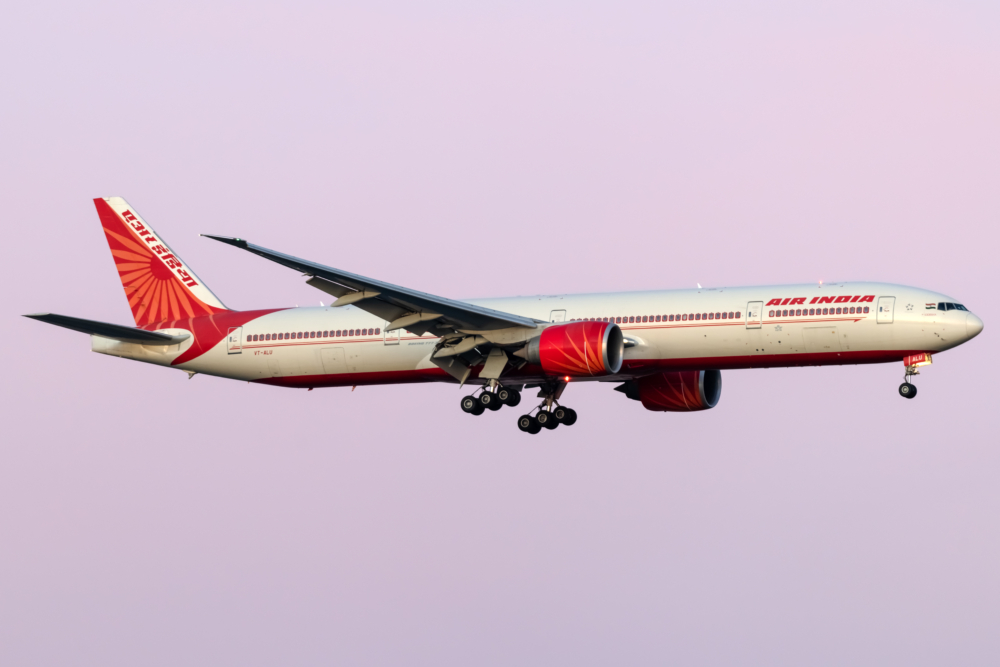As Afghan airspace remains off-limits to commercial flights, Air India has been feeling the impact. In order to service its US routes, the carrier has had to reduce the total payload to accommodate more fuel. This has meant offloading baggage and valuable cargo to make the longer journey. Let’s find out more.

Drop it
According to Business Standard, Air India has been flying with a reduced payload on its US services since last week. The closure of Afghanistan airspace means that flights must carry five to eight tonnes of fuel to fly around the nation. This has impacted AI’s flights to New York, Newark, Chicago, and Washington. San Francisco-bound flights have been taking the Pacific route to avoid this congestion.
The reduction in payload takes place by removing passenger bags and other cargo. Air India is reportedly removing 50 bags on flights from Delhi to the US, leaving passengers without their possessions upon landing. With every passenger getting two or three 23kg bags, these can quickly impact the total aircraft weight.

The payload issue has been particularly acute on the Delhi-Chicago flight. The usually 14.5-hour-long flight is now taking over 15.5 hours. As the longest Atlantic route from India, payload restrictions have been tighter than on other routes.
Notably, Air India’s record-setting 787-8 service from Delhi to Washington continues to operate. This route already had a payload restriction since its inception, and the crisis is likely to cause even lesser cargo onboard.
Thousands of passengers have been left struggling at their arrival in the US due to missing baggage, with Air India reportedly hard to reach. The carrier has been putting dropped bags on the next available flight or even those flown by United currently.
Route
Usually, US-bound flights from India take a simple path, flying straight through Pakistan and Afghanistan to enter Central before flying a bulk of the journey through Russian airspace and then directly entering the Atlantic. However, the closure of Afghan airspace makes this well-trodden path impossible.
Now, flights operate over Pakistan and enter Iran instead, flying over much of Western Europe before entering the Atlantic. This route takes longer and hence requires a greater fuel burn, hurting airline bottom lines. Until Afghan airspace reopens fully, which could take weeks or months, expect to see longer flights and payload restrictions.

The situation is similar for other US-bound or returning flights, minus San Francisco, which switched to the Pacific route after last week’s diversion. For now, Air India passengers might be wise to enquire if bags are being offloaded before their flight and the rights related to the same. Just as tickets become affordable, travelers to the US just hit another hurdle.
What do you think about Air India’s payload restrictions? Let us know in the comments!
from Simple Flying https://ift.tt/3D9gpdq
via IFTTT
Comments
Post a Comment